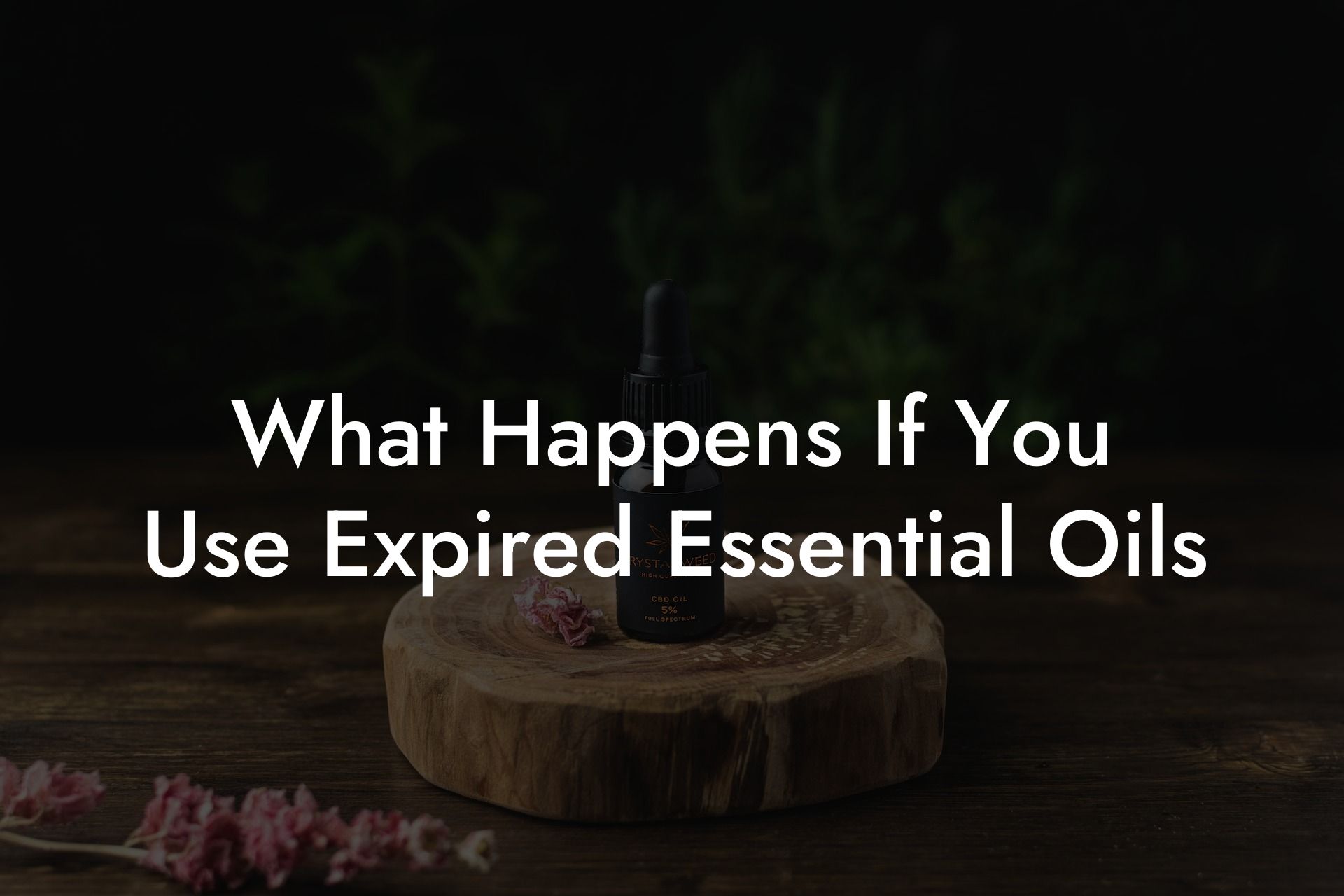Have you ever stumbled upon a bottle of essential oils hidden away in your cupboard and wondered if it’s still good to use? Like most products, essential oils do have an expiration date which, when ignored, can lead to potential risks and reduced effectiveness. Read on to learn what happens when you use expired essential oils, how to extend their shelf life, and identify the signs of deterioration.
Table of Contents
Why Do Essential Oils Expire?
Essential oils are volatile substances extracted from plants through different methods such as steam distillation, cold pressing, or solvent extraction. Over time, the chemical composition of these oils starts to change because of factors like oxidation, exposure to heat, light, and air, and contamination from the environment. These changes affect the quality, potency, and safety of the oils, making it essential to know their expiration date.
How to Know If Your Essential Oils Have Expired
While essential oils may not come with a specific expiration date, you can estimate their approximate shelf life. Citrus oils, for example, have the shortest life span of around 1-2 years, while oils like lavender and eucalyptus can last between 3-4 years. To help you keep track of your essential oils, consider labeling the bottles with their purchase date and estimated shelf life.
Here are some signs that your essential oils may have gone bad:
- Change in consistency: If the oil starts to become thicker or exhibits cloudiness, it may be a sign of deterioration.
- Foul smell: A rancid or musty odor may indicate the oil has oxidized and is no longer safe to use.
- Loss of aroma: A significant decrease in the oil’s scent can be a sign that it’s past its prime.
What Happens If You Use Expired Essential Oils?
Using expired essential oils can lead to various adverse effects, including:
- Reduced effectiveness: As the active compounds in the oils break down, they lose their therapeutic properties, rendering them less effective or entirely useless when it comes to addressing your needs.
- Potential irritation: Oxidation can cause the oil to become more sensitizing, potentially leading to skin irritation or allergic reactions.
- Increased risk of infections: Bacteria, mold, and fungus can grow in expired oils, increasing the risk of infections if applied to the skin or used in a diffuser.
How to Store Essential Oils for Longer Shelf Life
Proper storage and handling can significantly extend the shelf life of your essential oils:
- Keep oils in dark glass containers, as exposure to light can cause them to degrade faster.
- Store the bottles in a cool, dry place, away from direct sunlight or heat sources.
- Avoid touching the bottle opening or dropper with dirty hands or other contaminants to prevent bacterial growth.
- Replace the cap tightly after each use to minimize air exposure.
- Consider using smaller bottles for oils to reduce the amount of air in the container, and open bottles only when necessary.
What Happens If You Use Expired Essential Oils Example:
Imagine you’ve discovered an old bottle of lavender essential oil that’s been sitting in your bathroom cabinet for over five years. The oil has thickened, has a rancid smell, and the aroma is hardly noticeable. In this scenario, using the expired oil in a diffuser will not provide the desired relaxation benefits, and applying it on your skin can potentially cause irritation or infection.
Now that you’re aware of the importance of using unexpired essential oils and the potential risks associated with expired oils, it’s time to check the shelf life of your collection and ensure proper storage for maximum benefits. Share this article with your friends and family to spread awareness and encourage everyone to experience the immense benefits of essential oils. Moreover, explore the various blogs on Oshu Oils to enrich your knowledge and check out our range of essential oils, handpicked by aromacologists, to enhance your wellbeing in every possible way.





















